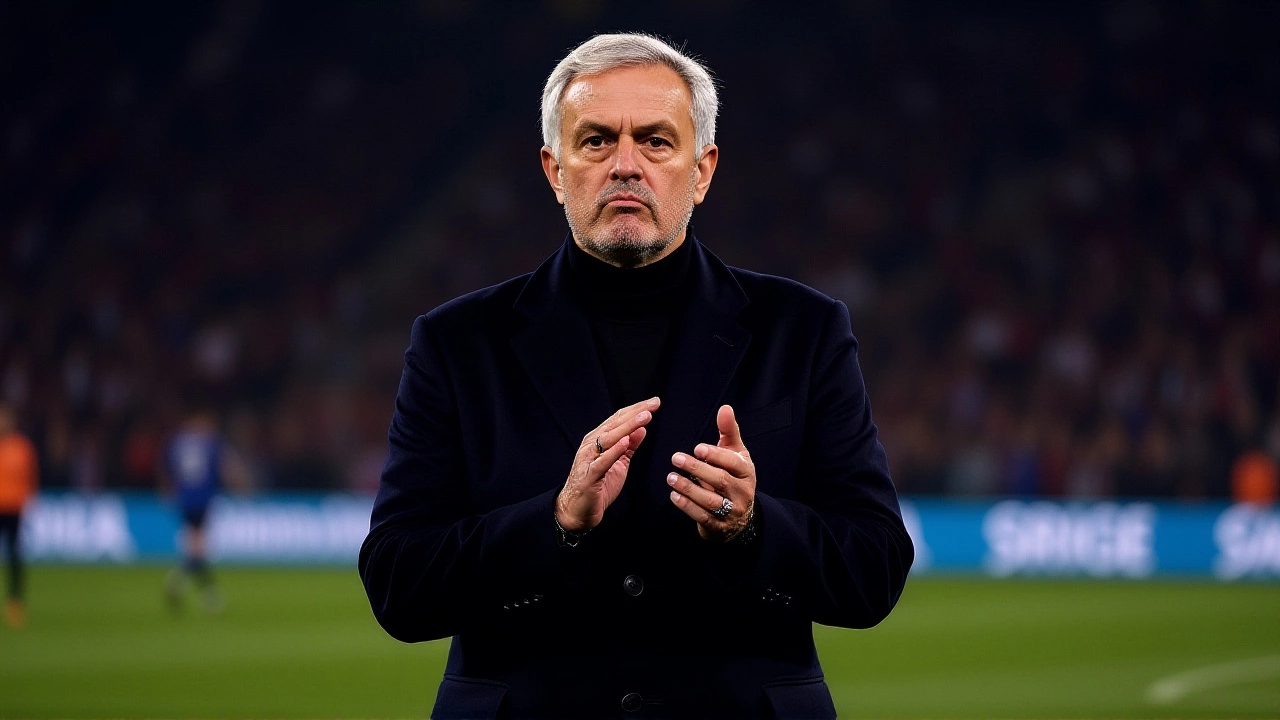When José Mourinho, manager of Benfica, returned to Stamford Bridge on September 30, 2025, the stadium buzzed with nostalgia – but his side walked off with nothing to show for it.
Meanwhile, Enzo Maresca, the newly‑appointed head coach of Chelsea FC, celebrated a vital 1‑0 win over the Portuguese club in UEFA Champions League Group Stage Matchday 2Stamford Bridge. The decisive moment arrived in the 18th minute when Benfica midfielder Richard Ríos inadvertently slotted his own cross into his net.
Match Overview and the Own‑Goal Miracle
Chelsea dominated possession, holding the ball for 58% of the 90‑minute contest and firing 14 shots, eight of which were on target. Benfica, set up in a low‑block, managed just three clear‑cut chances and a modest 42% possession rate.
The breakthrough was a textbook example of pressure and quick recovery. Pedro Neto surged down the right flank, delivering a low cross that met the sprinting Alejandro Garnacho. Garnacho’s sliding reach flicked the ball back toward the centre‑circle, where Ríos, attempting a defensive clearance, turned the ball past his own goalkeeper. The stadium erupted, the chant "José! José!" echoing for the first two minutes of play before the roar shifted to cheers for Maresca’s side.
Mourinho’s Emotional Return
It was Mourinho’s seventh appearance on the touchline at Stamford Bridge since his abrupt departure in 2015. The Portuguese legend, whose three Premier League titles with Chelsea still loom large in fans’ memories, had been greeted with a sea of scarves and a chorus that made even the most skeptical pundits pause.
"It feels like coming home, but the job is always about the result," Mourinho said in the post‑match press conference, a hint of melancholy in his voice. His tactical set‑up against Chelsea was a defensive shell, aiming to absorb pressure and strike on the counter‑attack – a stark contrast to the high‑pressing style he employed during his own Chelsea tenure.
Maresca’s Tactical Shifts and Youthful Energy
Enzo Maresca, only six months into his senior managerial career, opted for an attacking 4‑3‑3 that leaned heavily on the work‑rate of his young squad. After a lacklustre display against Bayern Munich on September 17, where Chelsea fell 2‑0, Maresca faced criticism for discipline lapses and dropped concentration.
In the second half, he introduced teenage winger Estêvão, joining existing forwards Raúl Jiménez and Garnacho. The trio pressed higher, forcing Benfica into uncomfortable territory. Although the substitution didn’t add another goal, it displayed Maresca’s willingness to gamble – a contrast to the defensive tweaks made by his predecessor during the loss to Brighton on September 24.
Fan Reaction and Atmospheric Notes
The atmosphere was electric. Within two minutes of kickoff, the “Mourinho” chant swelled, reminding everyone of the stark loyalty the former manager still commands. As the own goal fell, the stadium erupted, and supporters near the dugout erupted in a chorus of "Come on, Maresca!" – a clear sign that the fans are warming to the new boss.
One season‑ticket holder, 38‑year‑old Lily Patel, told Sky Sports: "Seeing José back here was emotional, but I’m glad our team finally got the win. The kids love the young lads; they bring fresh energy."
Implications for Chelsea’s Champions League Campaign
The victory lifts Chelsea to six points in Group E, alongside Bayern Munich (four points) and Benfica (three). With two matches remaining – a home clash against Bayern on October 24 and an away game at Benfica on November 3 – the Blues sit comfortably in second place, eyeing a knockout‑stage berth.
Statistically, Chelsea’s pass accuracy improved to 84% compared with 71% against Bayern, and they reclaimed discipline, receiving only one yellow card versus three in the opening game.
Expert Analysis: A Step in the Right Direction
Former England midfielder Gary Neville weighed in on Sky Sports: "Maresca is still learning, but this win shows his set‑ups can adapt. The key will be how he manages the double‑header against Bayern – those games separate the hopefuls from the pretenders."
Additionally, football data firm Opta highlighted that Chelsea’s expected goals (xG) rose from 0.9 against Bayern to 1.6 in this match, underscoring a more effective attacking approach.
Looking Ahead: What’s Next for Both Sides?
Benfica’s next assignment is a return trip to London for the final group game. Mourinho’s squad will need to tighten up defensively and find a way to break Chelsea’s high press if they hope to finish top of the group.
Chelsea, on the other hand, will likely stick with the attacking trio that earned the point, while fine‑tuning midfield shape to guard against Bayern’s relentless midfield engine.
Frequently Asked Questions
How does this result affect Chelsea’s chances of advancing?
The win lifts Chelsea to six points, placing them second in Group E. With two games left, a victory against Bayern and a draw at Benfica would almost guarantee a knockout‑stage spot.
What tactical changes did Enzo Maresca make compared to the Bayern match?
Maresca shifted from a cautious 4‑4‑2 to a more aggressive 4‑3‑3, pressed higher, and introduced youthful wingers like Estêvão. This increased possession to 58% and boosted shot accuracy.
Why was José Mourinho’s return emotionally significant for fans?
Mourinho led Chelsea to three Premier League titles and left abruptly in 2015. His chant‑filled welcome reminded supporters of that golden era, making his defeat feel like a bittersweet closure.
What were the key statistics from the match?
Chelsea held 58% possession, attempted 14 shots (8 on target), and recorded an xG of 1.6. Benfica managed 42% possession, 3 shots (1 on target), and an xG of 0.9. Both sides received a single yellow card each.
When is Chelsea’s next Champions League fixture?
Chelsea host Bayern Munich on October 24, 2025, at Stamford Bridge, before traveling to Benfica for the final group game on November 3, 2025.
